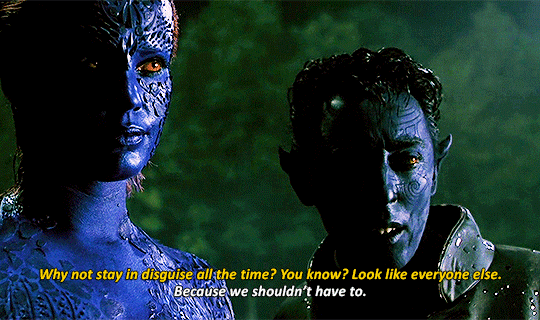Ableism, Magical Healing and Victimizing/Villainizing. Oh My!
/IMAGE BY PINTEREST
People with disabilities are often portrayed as “victims” or “villains”, and fantasy is no different. The genre commonly uses an offensive trope known as magical healing which misleads fans into thinking that disfiguration or disabilities should be fixed. Think The Witcher, The Shape of Water, or even Disney’s Peter Pan! These are just a few examples that have harmed the disabled community, including myself. And for what? Times are certainly changing and still, society hasn’t made room for people with disabilities, even if they think they have.
What is Magical Healing?
Magical Healing is an approach most notable in Fantasy that is a solution to heal through natural or magical elements that cannot be scientifically explained. Through the many forms of media, it is still a prevalent trope that only in recent years society has seen as it truly is: ableist. The most recent form of this trope is The Witcher when one of the protagonists, Yennefer, trades her disability (or should I say the ability to differ from society) and her ability to have children so she can become a beautiful and powerful woman. Don’t get me wrong; I’m all for an underdog to be on top, but I wished they didn’t rely on the tiresome approach that normality trumps people who are different.
“You're born helpless so you find strength”
Netflix's The Witcher, 2x04
IMAGE BY THE DAILY DOT
In this side-by-side picture is Yennefer played by actress Anya Chalotra in Netflix’s The Witcher (left) before and (right) after her transition. It’s bad enough that this happened but to have people comment on how revolutionary the scene was, is all the more reason why some of the disabled community feels mistreated.
Why This is Harmful
Choosing to include a disabled character in your story and then making what makes them stand out disappear or “fixed” is a negative message that says those who are among the disabled community will only be accepted into society if they change. Even making characters with disabilities the victim or villain isn’t any better because it allows society to think that just because you’re different or have some sort of abnormality, it’s okay to judge or treat them as if they’re the problem.
IMAGE BY DISNEY
Take J.M Barrie’s classic Peter Pan as a prime example. Captain Hook is portrayed as an evil man whose sole purpose is to fight with the protagonist Peter in Neverland for all eternity. Yet, most people get the message wrong, Captain James Hook is the hero, and Peter is the true antagonist. At least ABC’s series Once Upon A Time got that meaning right.
Still, it’d be nice to see good representations in Fantasy, instead of bad ones. It’s not just Barrie’s work or The Witcher that is ableist. Tim Burton’s beloved film Edward Scissorhands is seen as revolutionary to some who associate themselves with a disability, but to others, they find it ableist as the townsfolk tried to change who Edward was, though there was nothing to change about him. Even the beloved comics—turned-film-franchise X-Men is also a grey area. Sure, they’re different and Professor X is one of the most beloved characters with a disability out there, yet some may argue that it’s ableist as mutants are seen as “freaks,” or written with bad representation. I understand people’s perception of these two examples, but the fact that they gave people like me a voice and made them powerful without all of them changing is what made them so special in the first place. Given these reasons, I disagree that X-Men and Edward Scissorhands are ableist. In fact, I think they’re one of the best representations of disabilities in fantasy yet.
The following video below is a scene from X2 which allows viewers to understand the metaphor between mutants and disabilities.
Image by JDMORGANZ
Source Youtube
I do have to note that with my disability, I try to give society the benefit of the doubt, but it becomes more challenging with these negative approaches in the media. Reforming people with disabilities isn’t woke; it is harmful in so many ways. I just don’t understand why society still thinks it’s acceptable to use these tropes, even though it has been voiced as offensive. This is all the more reason why magical healing and victimizing or villainizing the disabled community needs to stop. This goes for all media, not just films or tv series.
IMAGE BY ABC
KYLIE MILNE— Hi, my name is Kylie, I’m a twenty-one- year-old Professional Writing student with a mild case of Cerebral Palsy, and a caffeine addiction, so I decided to write a series about it. I love analyzing films, television shows, and literature, but when I’m not passionately dreaming of the next creative idea in my head, I enjoy spending time with my friends and family.








